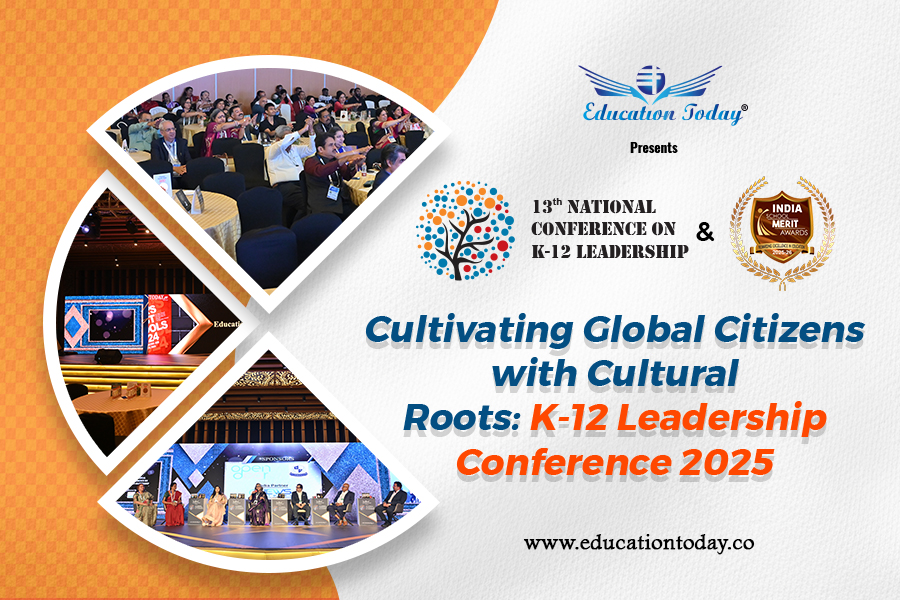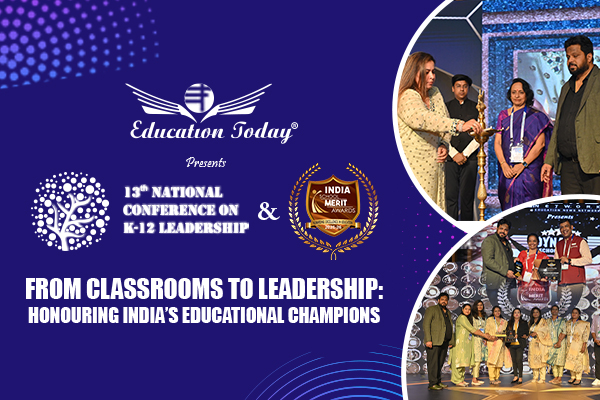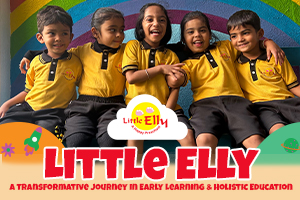Empowering Digital Equity: Insights from Hyderabad Educators' Summit 2024
The Hyderabad Educators’ Summit 2024 & Dynamic School Awards, hosted by Education News Network in collaboration with EducationToday, spotlighted one of the most pressing challenges in modern education: the digital divide in education. Held amidst much enthusiasm, the summit brought together education leaders, policy influencers, and technology advocates, all united by a shared vision—to bridge the digital gap and empower learners across India.
At the forefront of this landmark event was a powerful panel discussion titled “Addressing the Digital Divide in Education”, which sparked insightful dialogue about the role of EdTech in schools, the significance of teacher training, and the urgent need to enhance digital learning access in underserved communities.
Understanding the Digital Divide in Indian Education
As India embraces the vision of NEP 2020, issues of digital literacy, educational infrastructure, and technology in education have taken center stage. While urban schools have integrated blended learning models and virtual classrooms with growing success, rural institutions continue to lag behind due to inadequate digital access, unreliable internet connectivity, and lack of trained educators.
The panel brought to light how this rural-urban digital divide perpetuates inequality in educational outcomes—an issue that needs immediate and sustained action.
Key Voices from the Summit
Dr. Vidya Sravanti
Director Principal, Reqelford International School
Chairing the session, Dr. Sravanti offered a poignant reminder:
“If we teach children as we taught yesterday, we rob our children of tomorrow.”
She underscored the urgency of adapting to new pedagogical tools and digital learning platforms, especially as the world becomes increasingly reliant on online learning. Dr. Sravanti stressed that while urban areas have begun thriving in digital environments, rural education in India remains at a crossroads, grappling with outdated methods and infrastructure limitations.
Ms. Mogali Varalaksmi
Director, Jubilee Hills Public School
Ms. Varalaksmi emphasized the pivotal role of teacher training and parental involvement in digital education. Highlighting gaps in educational infrastructure, she called for increased government and private sector investment to create meaningful change in rural areas.
She advocated for training programs that empower teachers to integrate digital tools effectively and suggested equipping parents—especially in urban low-income households—to support students in navigating digital learning environments from home.
Dr. Caroline Pascoe
Principal, The International School Bangalore
Dr. Pascoe drew attention to the quality and relevance of digital content. She argued that education technology must go beyond flashy tools; it needs to align closely with curricula and pedagogy. For her, blended learning should enhance—not replace—traditional methods.
Her innovative suggestion of mobile and digital libraries for rural communities presents a scalable way to ensure access to academic content where internet infrastructure remains weak.
Mr. T. Jayapal Reddy
Chairman, St. Peter’s Institute of Pharmaceutical Sciences
Mr. Reddy brought a policy perspective to the table. He discussed the often stark disconnect between education policy and ground-level implementation. While government budgets earmark significant funds for digital transformation, the execution—especially in rural zones—falls short.
He urged that teacher preparedness must be prioritized before the rollout of technology. "Empower the teacher first," he said, "then empower the system." Without this foundational step, any investment in EdTech in schools risks underperformance or misuse.
From Dialogue to Action: Collaboration is Key
A clear takeaway from the panel was that solving the digital divide cannot rest on schools alone. It requires coordinated efforts from educators, policymakers, EdTech developers, and community stakeholders. The panel stressed the need for:
- Expanding inclusive education strategies that recognize regional challenges
- Updating teacher training curricula to include digital pedagogy
- Investing in scalable models for online learning access in rural areas
- Promoting digital equity through policy enforcement and local partnerships
Bridging this gap isn’t just a matter of installing devices or boosting bandwidth—it’s about nurturing a culture of digital readiness and lifelong learning, especially in underserved regions.
The Broader Vision: Education Innovation for All
As India marches towards becoming a digitally empowered society, the Hyderabad Educators’ Summit 2024 was a pivotal moment in assessing where we stand—and where we must go.
The event illuminated how education innovation, when paired with inclusive policy frameworks and local commitment, can transform schools and close long-standing disparities. By addressing not just access but effective usage of digital tools, the summit reinforced the idea that the digital transformation of education is about equity, not just technology.
Looking Ahead
The conversation sparked at the summit is only the beginning. As EducationToday continues its mission to connect stakeholders across the education ecosystem, it’s clear that initiatives like these play a vital role in shaping the future of digital learning in India.
We invite educators, thought leaders, and innovators to keep the dialogue going and share scalable models that can truly democratize education. Let’s ensure that every child, regardless of geography, gets the opportunity to thrive in a digitally inclusive classroom.






